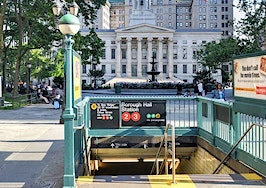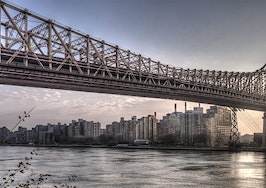- New York's unfortunate ranking is heavily attributed to Manhattan’s high cost of living, which is the highest in the U.S.
- According to the report, the average apartment in Manhattan is $3,984 per month, which is four times the national average. In Brooklyn, rent is 2.5 times the national average.
- Gallup-Healthways Well-Being Index– a data collector of the health and well-being of large populations– revealed New York has some of the lowest scores in the country.
- Wyoming stole the number one spot for best states to retire in, with South Dakota, Colorado and Utah following.
New York is the worst state for retirees in the country, according to Bankrate.com’s recent analysis of taxes, healthcare, weather, crimes, well-being and cost of living.
Despite real estate agents reporting a rise in older clients looking for properties in the area, New York’s unfortunate ranking is heavily attributed to Manhattan’s high cost of living, which is the highest in the U.S.; Brooklyn is ranked fourth.
According to the report, the average apartment in Manhattan is $3,984 per month, which is four times the national average. In Brooklyn, rent is 2.5 times the national average. Additionally, New York state has the highest state and local tax burden in the U.S. at 12.7 percent, compared to a 9.5 percent national average.

Claes Bell/Google Plus
Even a haircut in the Big Apple is pricey compared to the rest of the country: at $22.08, it’s about twice as much as the national average. Although Manhattan and New York state both offer immense cultural and recreational experiences for residents, Gallup-Healthways Well-Being Index — a data collector of the health and well-being of large populations — revealed New York has some of the lowest scores in the country.
Wyoming stole the no. 1 spot for best states to retire in, with South Dakota, Colorado and Utah following consecutively.
Claes Bell, a senior analyst at Bankrate.com, spoke with Inman about New York’s ill-fated placing in the retirement setting study and how the shifting national focus from beachfront towns may be indicative of more financially minded seniors.
New York ranked as the worst state for retirement in part because of a high cost of living, but Manhattan has been pricey for years. Do today’s retirees have less money to spend on housing, or are they being smarter about spending after retirement?
There’s no denying that many seniors, and many close to retirement, are behind on their retirement savings. We’re in the middle of a massive shift from pension-based retirement to retirement based on defined contribution plans like 401(k)s, and many people haven’t saved enough.
One way to help deal with that is making sure you can control your costs in retirement, so you don’t have to continue to work into old age or drastically cut back on your standard of living to avoid depleting your savings. Unfortunately, many large metros, while offering tons of great amenities and fun things to do for retirees, make it very difficult to control costs and conserve savings due to their high cost of living, including rent and high tax burdens. Those factors ultimately ended up pushing a lot of great states down in our rankings.
Would it be difficult for retirees to find apartments for renting or owning in a metro like New York City? Are there programs that offer seniors housing benefits in any of the five boroughs that could offset excessive costs?
I can’t really speak to the specific housing situation in New York beyond the data I have on average rents. I will say that even if such programs exist, that’s another layer of effort and planning that those nearing retirement will have to deal with in their retirement preparations.
Although the price of entry in NYC is high, do you believe some benefits — including accessibility, quality of life, restaurants, etc. — help alleviate some of the expenses?
Everyone’s idea of a great retirement is a little bit different, and it may be a lot of people will find the benefits of retiring in New York outweigh the costs, especially if they have family support in the area. But it’s important for people considering retirement in that area to recognize up front what some of the challenges will be.
Since Bankrate’s retirement hotspots concentrate primarily on budgets over beaches, what prompted the switch? Do you believe the recent financial crisis prompted retirees to focus primarily on stability when choosing their retirement locales?
We still incorporate weather and overall well-being into our rankings, but you’re right, we do focus a lot on practical issues. The idea is to get people thinking about what they are and aren’t willing to live with in retirement, and to take a broader view of places where they could enjoy a good retirement.
Sometimes people fall into the trap of thinking about retirement as some sort of extended vacation, but that’s not really what it is. No matter where you retire, you’re going to have to do mundane things like buying groceries, accessing medical care and paying taxes. And if those things are really difficult to do in the place where you’ve settled down, it can make your retirement much tougher.
Even a dream retirement can turn into a nightmare if you run out of savings and have to go back to work or drastically reduce your standard of living to make ends meet.









